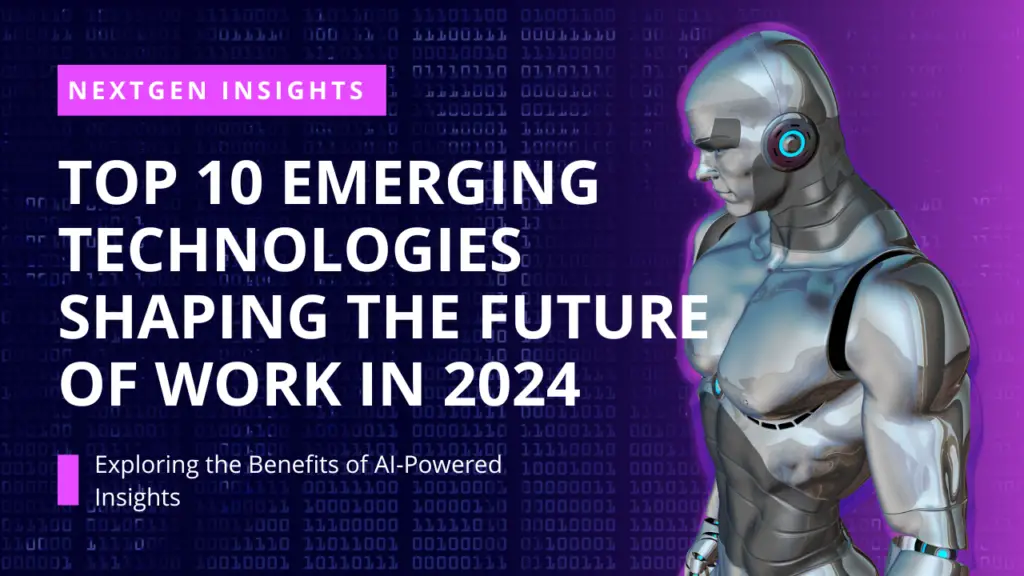Introduction
There exists a tremendous acceleration in the pace of progress in 2024, which is unparalleled, at least thus far. Artificial intelligence (AI) is at the center of this transformation, and with machine learning and automation, it is making huge strides in practically all industries. Not just a buzzword, it is a potent force that is going to define the way of working and living—from revolutionizing health to remapping process in manufacturing. We will explore the depth of AI’s impact across industries in this blog, cover the latest trends and innovations, and muse on how businesses and individuals can adapt in times of rapid change.
The Evolution of AI: From Concept to Revolution
Artificial intelligence has come a long way since its beginning. Starting off with rather basic algorithms and low data crunching capabilities, AI has developed into a mature technology executing complicated tasks with uncanny precision. Where particularly media and continuity have been staggering are in machine learning—where algorithms learn and improve from experience—and automation technologies.
Machine-learning models have been turned loose on huge sets of data, recognizing those patterns to an extent that allows them to predict outcomes with precision. This has been made possible through boosts in neural networks, natural language processing, and computer vision. On the other hand, automation underscores the aspect of AI application that will perform repetitive and boring tasks, thus switching their attention to strategic and creative tasks by human beings. These are the technologies at the forefront of the new frontier of innovation.
Artificial Intelligence and Machine Learning: Key Trends in 2024
- Advanced Natural Language Processing (NLP)
In the year 2024, NLP has been taken to an all-new level where machine learning can understand and generate human language with an all-new fluency never seen in the world. Chatbots and virtual assistants have really become very intuitive to handle complex queries of any user, whether for customer service, content creation, and even helping with personalized experiences through e-commerce and several other platforms. This latest ability had availed better user-experiences.
- Advanced Computer Vision
The technology of computer vision has taken numerous steps ahead. It allows machines to comprehend visual data’s sense and analyze it with paramount precision. Computer vision in areas such as healthcare aids in the diagnostic imaging process in later disease detection. In retailing, it assists better in the regulation of inventories as well as enhances safety with the help of modern surveillance systems.
- Predictive Analytics and Decision Making
Predictive analytics makes business decisions smarter because of the machine learning that takes place in the numerous sectors. Businesses use AI to forecast market trends, streamline supply chains, and for customization in their marketing strategies. For instance, financial institutions use predictive models for the assessment of risks and fraud; similarly, retail companies predict consumer behavior and manage inventory efficiently.
- Automation and Robotics
In the process of increasing adoption, automation grows, and robots and AI systems are more and more capable and execute a wider set of tasks. In the manufacturing sector, increased automation reduces error, increases efficiency, and streamlines production lines. For example, autonomous robots can currently execute complex assembly tasks, conduct inspections, and even work with human employees in factories that are supposed to be smart.
How These Technologies Transform Different Industries
- Health Care: Revolutionizing Patient Care
AI has touched its influence deeply all over the health sector, introducing new possibilities in the field of diagnosis, treatment, and managing patients. AI testing tools work with medical imaging, where it would be very burdensome for human specialists to make these identifications of maladies such as tumors or fractures by traditional methods. Predictive analytics would help in the anticipation of patient needs, hence optimizing the treatment plan or management of health resources to the best efficiency.
Moreover, it is through AI that there is now the accelerated speed for the discovery of new drugs, and in the process, time and costs that would have been incurred in traditional research approaches. This should not be mentioned to the uninterrupted breakthrough in the line of personalized medicine that, through AI, has been tailor-made to fit genetic profiles and provide alone effective and targeted therapy.
- Finance: Improving Efficiency and Security
Application of AI in fintech supports operational efficiency, customer experience experience, and security. An example is the use of machine learning algorithms to detect fraudulent activities by tracking transaction patterns and then identifying any deviation from regular patterns in a timely manner. AI systems applied to trading optimize investment strategies using analysis of market trends and help greatly in dealing execution.
AI also finds application in customer service in the financial sector, where chatbots and intelligent assistants help users with specialized help in the face of routine requests. This, in turn, allows human agents to focus on complex requests more seriously, effectively simplifying their workload.
- Retail: Personalization and Efficiency
AI is churning up the retail landscape through improved customer experiences and operational enhancements. Algorithms that personalize messages can tailor marketing communication based on consumer behavior and preferences to recommend products, or create shopping experiences which are individual. This leads to higher satisfaction among the customers and increased sales.
Further, AI-enabled inventory management systems optimize the efficiency of supply chains by predicting demand, planning stock, and reducing wastage. Warehouse automation lets the picking processes of the order flow faster, hence increased plant efficiency and lead-time development.
- Manufacturing: The Birth of Smart Factories and Boosted Productivity
This has started a revolution in this manufacturing sector with integrated AI and automation technologies. In smart factories, AI-driven robots and sensors are ensuring higher cutting-edge productivity and accuracy. Meanwhile, machine learning-powered predictive maintenance systems monitor equipment performance and forewarn failure to prevent its occurrence. In return, it brings downtime and maintenance costs down.
Automation also makes manufacturing environments safer as it delegates risky functions to machines and allows the workforce to concentrate on more complex and differentiated work. In this manner, human-robot collaboration is made efficient and adaptive through the different process of manufacture.
- Transportation: Autonomous Vehicles and Logistics
AI is making a huge breakthrough within transportation. Autonomous vehicles and logistics solutions are right up there. Self-driving cars continue to become smarter over time, as artificial intelligence systems increasingly support them in making better decisions for navigating complex and difficult environments to reflect their decisions instantly. It’s bound to reduce accidents, improve the flow of traffic, and revolutionize the way people travel both personally and commercially.
Optimization in logistics powered by AI includes state-of-the-art route planning, fleet management, and predictive maintenance. Automation of warehouses helps in improving the speed of sorting and distribution, thus ensuring much faster and effective supply chains.
Although there are numerous benefits that would accrue from the diffusion of AI and automation, it also brings with it important social and ethical considerations. More worrisome, perhaps, is data privacy, where generally, AI systems would have access to massive personal data. Further, trust can be sustained only if the data is well-handled in a secure and transparent way.






